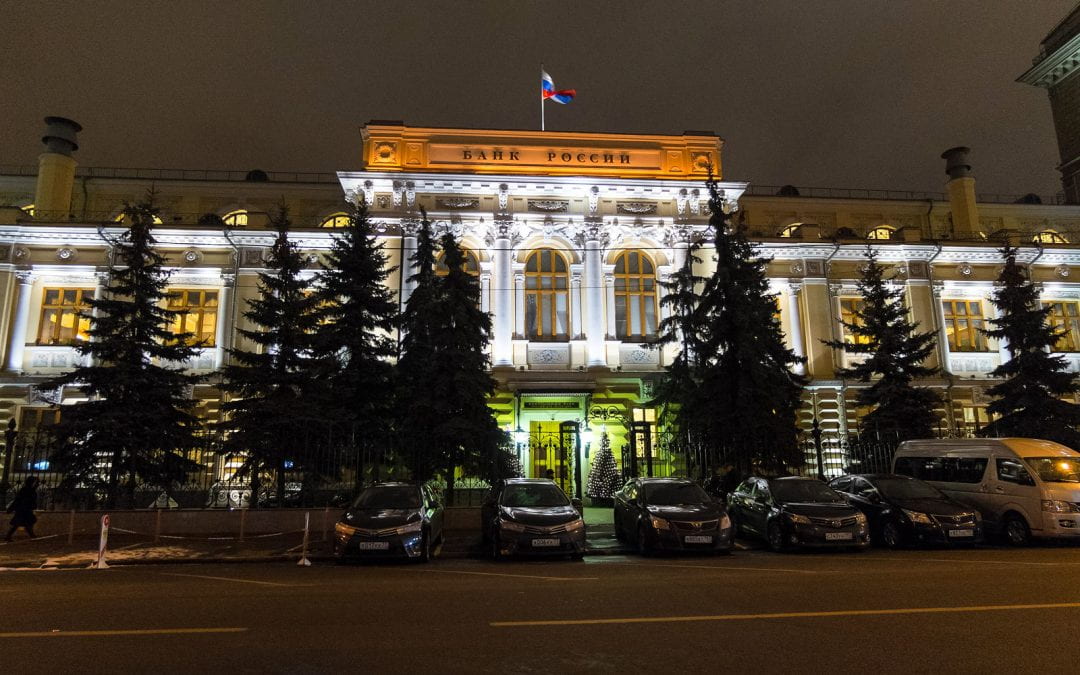On February 21, 2022, Russian president Vladimir Putin announced that the Russian Federation would recognize the Donetsk People’s Republic and the Luhansk People’s Republic, two Russia-backed separatist regions of Ukraine, as independent sovereign states. On February 24th, Putin announced his decision to launch a “special military operation” in eastern Ukraine. In just minutes, Russian armored vehicles and troops entered Ukraine from the north and east, where they had been amassed since November, 2021, and attacked strategic military targets near Kyiv, Kharkiv, Odessa, and the Donbas. In a matter of weeks, Russia’s invasion of Ukraine has devastated the Ukrainian people and economy, and there is growing evidence that Russian forces have committed war crimes in Ukraine.
The international community responded to Russia’s aggression immediately, implementing a concerted multilateral sanctions regime. This regime offers a comprehensive case study in the formation, implementation, and potential effectiveness of international financial sanctions.
Sanctions Against Russian Financial Institutions
On February 24th, the same day as the beginning of the Russian invasion, the United States, in concert with the European Union, the United Kingdom, South Korea, and Japan, announced “unprecedented action” to block Russian banks’ access to the SWIFT international payment system. The stated goal of the action was to “target the core infrastructure of the Russian financial system.”Its effect was to isolate Russia’s two largest financial institutions, VTB Bank and Sberbank, which the U.S. Treasury described as “uniquely important to the Russian economy, holding about a third of all bank assets in Russia.”
The U.S., E.U., U.K., and Japan announced further financial sanctions on February 28th banning transactions with the Russian central bank, its ministry of Finance, and its national wealth fund, detaching the Russian government from accessing any of its assets held within the United States. U.S. sanctions also barred these Russian banks from processing payments through the U.S. financial system, severely limiting their ability to transact in U.S. dollars. Since the U.S. dollar is by far the most widely-used currency in international transactions, the sanctions barred Russian entities from most cross-border transactions.
One particularly notable aspect of the 2022 Russia sanctions regime is participation by countries that are not typically characterized as “the West.” For example, the Bahamas banned transactions with Russian entities soon after the invasion began. Singapore imposed banking restrictions and export controls.Even Switzerland, which is famous for its neutrality in world events, froze more than $6 billion of Russian assets. China, Russia’s ally and largest trading partner, has so far remained neutral.
Sanctions Against Russian Industry
The Biden administration also announced that it would stop high-tech exports from the United States to Russia. These measures added to an already long list of sanctions maintained by the United States against Russia stemming from Russia’s 2014 annexation of Crimea and subsequent support of separatist militias in eastern Ukraine. The U.S. and Germany announced that construction of the Nord Stream 2 pipeline would not be allowed to continue and the U.S. enacted sanctions against Nord Stream 2 AG’s corporate officers.
Sanctions Against Russian Individuals
Governments have also targeted Russian individuals with sanctions. The European Union froze assets of dozens of Russian individuals and barred them from entering E.U. territory. The E.U. sanctions list includes President Putin himself, Russian foreign minister Sergei Lavrov, defense minister Sergei Shoigu, the head of the Russian security service (FSB) Aleksandr Bortnikov, various “oligarch[s],” and members of “Putin’s inner circle.” The United States and the United Kingdom have even taken the unusual step of sanctioning the adult daughters of Vladimir Putin and Sergey Lavrov to “mak[e] sure those who have benefited from Putin’s rule feel the consequences.”
Private Actions in Response to Russia’s Invasion of Ukraine
Ukrainian president Volodymir Zelenskyy has said that government sanctions are not enough to respond to Russia’s actions. Zelenskyy called on businesses to voluntarily cut ties with Russia to deprive the Russian government of funding. Many companies in the United States have done just that. The exodus of U.S. companies from Russia includes Goldman Sachs, Western Union, Bain, American Express, Mastercard, Visa, Citigroup, Bloomberg, Disney, Google, Microsoft, Apple, IBM, and others. Global corporations like McDonalds and Coca-Cola are opting to exit Russia rather than risk the reputational harm of continuing to do business there. Foreign law firms have fled Russia in droves.
Sanctions Effectiveness Remains Unproven
In response to the comprehensive international sanctions regime, Russian financial markets initially bristled, falling by more than thirty percent on February 24th. The Russian ruble went into freefall, reaching record lows and losing close to seventy percent of its value by March 7th. Russian stock indices plunged as much as forty-two percent within hours of opening on February 25th, prompting Moscow to halt trading. The exchange remained closed for a month, partially reopening on March 24th.
The 2022 sanctions regime seems to be taking a toll. Vladimir Putin recently acknowledged that sanctions are slowing Russia’s energy industry, which accounts for sixty percent of the country’s GDP. Russian companies remain cut off from international transactions. However, the ruble has rebounded to near its pre-invasion value, causing some observers to wonder whether the Russian economy may prove more resilient than expected. Still, it seems the Russian economy remains vulnerable in the long term. The Biden administration recently revoked exemptions allowing Russia to pay its sovereign debt obligations, moving the country even closer to a debt default. Time will tell whether the sanctions regime proves effective.
Author Biography: Eric Cunningham is a 2023 J.D. candidate at The George Washington University Law School, Senior Executive Editor of The George Washington Law Review, Vice President of the International Law Society, and Moderator of the International Law and Policy Brief. Eric received a B.S. in economics from West Virginia University. He previously held accounting roles in the software industry and served on the board of TransitMatters, a nonprofit advocacy group.Tweet

